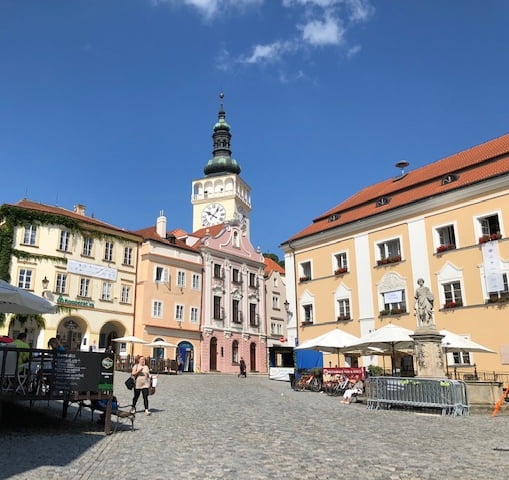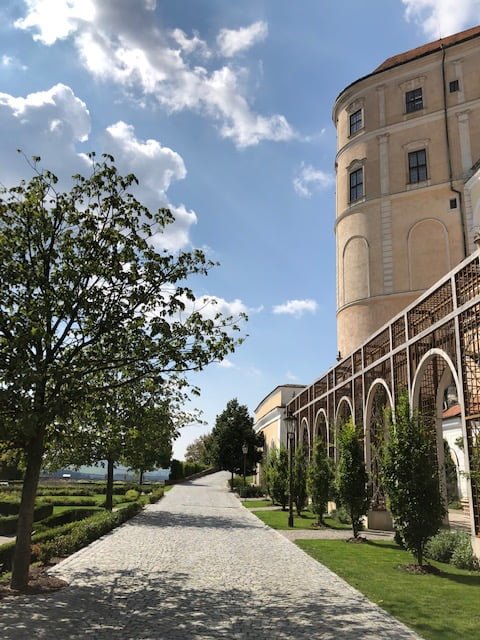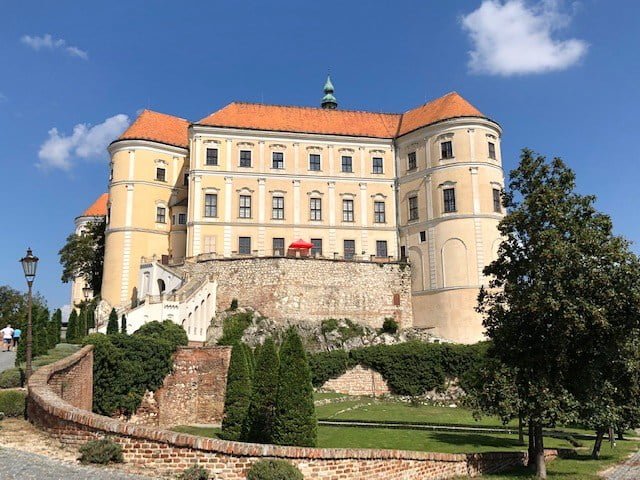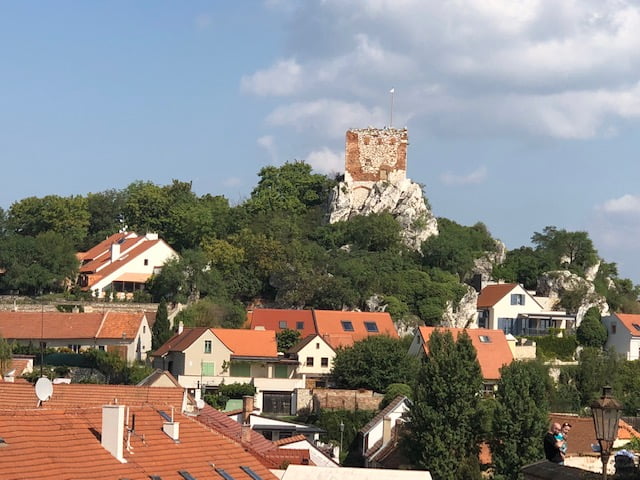A travel guide from an Advanced Sommelier student.
Burčák
As we got out of our tour guide’s car, we noticed large plastic jugs of liquid labeled “Burčák” across the street. We learned that burčák, sold around harvest time, is a young wine that has only been fermenting for a few days, which makes it sweet and low in alcohol.
The Moravians apparently claim that drinking several liters helps to ensure good health. One noted risk, however, is that burčák can explode if it is contained too tightly due to the fermentation that is still occurring. So store your burčák wisely – or, better yet, drink it quickly, as it tastes best within the first day or two.

The Town Square
Prior to stopping at a winery in Mikulov, we wandered around the town square and then over to the Chateau. Mikulov’s first written records date back to 1173, and historical monuments can be seen around the town’s landscape.
Following the square is the 15th Century Jewish ghetto and the Goat Tower, a two-story medieval fort built to help protect the town). Quite the beautiful, historical setting.





Mikulov Family Winery
Our winery stop in town was at Rodinné Vinařství Mikulov (Mikulov Family Winery). The winery was closed in preparation for an annual festival but they kindly granted us an appointment for a tasting. The tasting was hosted by a friend of the family, who himself is a wine consultant. Sips of great wines were intertwined with his tales of the history of the winery and Czech winemaking.

This small-production winery makes about 20,000 bottles per year. The winemaker, Kateřina, is one of the few female winemakers in the Czech Republic. The winery is housed in a building that was originally a slaughterhouse. The winemaker bought it ten years ago by offering half the asking price – it apparently took the seller a while to agree (understandably perhaps) but he eventually capitulated. The family is currently harvesting their 8th vintage.

Pool Wine is Czech for Rosé
One fun tidbit the wine consultant shared is that rosé wine is often referred to as “pool wine” in Czech. He explained that rosé is good to drink when swimming (a little twist on the American idea of rosé as a “summer wine”).
Until recently, Rosé was only sold during the summer months. A few years ago, the country adopted an American holiday that popularized the wine in February. Yep, Valentine’s Day in Prague is all about the Rosé.
The winery has a beautiful outdoor area, and after the tasting, we sipped the last of our wine out on the terrace. The combination of the setting, the wine, and the wine education led to an excellent winery experience.

